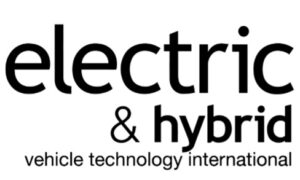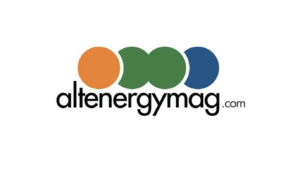
The future of the automobile industry is electric: In light of stricter emissions regulations and state bans on the future sale of gas-powered cars, electric vehicle (EV) and scooter sales have increased rapidly, and those who make the switch are not looking back.
To keep up with the greater demand for EVs and electric scooters, the batteries powering these vehicles need to be safe, affordable, and readily sourced. Lithium-ion (Li-ion) batteries have done a good job bringing the EV revolution to where it is today, but they’re not a perfect solution.
Because of their flammability, chemical toxicity, and rising costs due to supply chain instability, relying on Li-ion alone limits the potential for a large-scale transition to EVs. The world needs a safer, cheaper EV battery to make e-mobility options ubiquitous and continue reducing man-made carbon emissions. Here’s how the current prevailing technology can be supplanted by the next generation of battery.
From Toxic Flammability to Safety and Stability
Lithium batteries contain organic electrolytes that are flammable, and extended use can easily cause them to overheat. Overheating can lead to the onset of thermal runaway at temperatures as low as 60 degrees Celsius (140°F), in which a chain reaction unfolds inside the cell and an uncontrolled amount of heat is released. Before a battery cell in thermal runaway actually catches flame, it vents flammable gasses such as hydrogen fluoride and carbon monoxide. These toxic vapors can cause an explosion when they ignite, making EV battery fires especially dangerous.
Because most EVs and electric scooters are powered by lithium-ion batteries, the hotter the climate is, the more unsafe the battery pack. In India, for instance, outside temperatures can reach up to 120 degrees Fahrenheit in the summer, and the battery of a running EV (or a scooter with no active cooling) is prone to overheating in such conditions. Consumers invest in automobile and electric scooter purchases for a safe, reliable means of getting around. Cars and scooters powered by Li-ion batteries (including LFP / LiFePO4) miss the mark on both counts: their chemistry entails inherent risks with extended use, and their usage is contingent upon “safe” weather conditions.
The likelihood of battery fires caused by thermal runaway will increase with more cars and scooters on the road using Li ion technology. Adding to the EV risk, lithium-ion batteries are generally found at the bottom of EVs, covered only by a titanium plate for safety. Their central placement puts all passengers at risk, and it can take mere seconds for a battery fire to overwhelm a vehicle. With hundreds of millions of cars on the road every day, it is crucial to public safety to develop a battery with none of these chemically unstable characteristics.
Not only do Li-ion batteries (including LFP / LiFePO4) pose a danger with everyday use, there are also potential risks in the production process. Li-ion battery manufacturing involves the widespread use of N-Methyl-2-pyrrolidone (NMP), a toxic solvent that can potentially damage the liver, kidneys, and reproductive and central nervous systems. In an effort to reduce harm to the environment, the production of Li-ion batteries instead poses a medical risk for the people who make them.
In contrast, Alsym batteries are aqueous, using water as the primary solvent. The manganese and metal oxides used in our technology do not require the use of NMP, and the batteries do not have the same tendency toward thermal runaway as Li-ion. Lithium battery fires are also extremely hard to extinguish completely, making them unsuitable for maritime applications. Alsym’s chemistry is a safer, more promising option for powering maritime shipping, which can help mitigate the 900 million metric tons of pollutants coming from ships each year.
More Affordable for Mass Production
Li-ion battery pack pricing has been volatile in recent years due to and supply chain issues. These price trends are already negatively impacting automakers’ ability to sell mass-market EVs and scooters without government subsidies or other forms of support. The US aims to have EVs comprise 50% of all car sales by 2030, but this goal is only feasible if EVs are affordable for the average consumer.
Li-ion batteries make up about 35% to 40% of an EV’s cost, and electric cars often cost at least $10,000 more than gas vehicles from the same automaker. Until battery makers can reduce manufacturing costs, this price gap will not decrease. The cost of producing Alsym batteries is estimated to be much lower than lithium batteries, making EVs more economically accessible.
The key to our cost-effectiveness: Alsym batteries can be made on 95% to 97% of the same equipment as Li-ion batteries, which means less time and money spent constructing bespoke facilities. Where Li-ion battery plants have expensive dry rooms and clean rooms to prevent contamination of the volatile chemical components, Alsym technology uses safer chemistry that circumvents the need for those measures.
A Truly Clean Technology
A major irony of Li-ion batteries is their far-flung supply chain, which generates heavy carbon emissions and neutralizes the climate benefits of adopting EV technology. Key minerals for Li-ion battery production — like cobalt, nickel, and lithium — are sourced from South America, Asia, and Africa. The Li-ion supply chain not only leads to high transportation costs but also results in a number of environmental and ethical issues.
Most of the world’s cobalt is mined in the Democratic Republic of the Congo, where the mining industry is infamous for exploiting child labor, displacing residents, and damaging the environment. In Indonesia, the world’s largest producer of nickel, mining and carbon-intensive refining has contributed to deforestation, soil erosion, and water pollution.
Lithium mining has been associated with accelerating drought and displacing indigenous populations in countries ranging from Argentina to Serbia. China, which controls 80% of the world’s lithium refining facilities, is known for its abundant use of heavily polluting coal to power their refining machinery
The fact is, no matter where lithium-ion battery producers source their materials, the continued use of these minerals undermines the primary drivers behind EVs, which is to reduce harm to the environment, promote sustainability, and improve people’s lives. That’s why Alsym uses components with robust domestic supply chains that cut out global shipping costs and emissions while supporting US manufacturing.
The Next Generation of Battery
Electrification requires more and more batteries, but the market is dominated by lithium-ion. Unfortunately, Li-ion batteries come with a long list of issues and limitations that make them problematic for serving all needs and markets. Alsym takes the risk and cost out of high-energy batteries by developing low-cost, safe, non-toxic batteries with the power and durability of lithium-ion.
The mobility industry’s transition to EVs and electric scooters necessitates an equivalent evolution in battery technology. While Li-ion batteries have played a pivotal role in enabling this shift, their inherent limitations and concerns pose barriers to large-scale and safe adoption. Alsym’s innovative technology is a major stepping stone toward a future where clean transportation is not a luxury, but the norm. Contact us today to learn more about our disruptive low-cost and high-performance battery chemistry.





